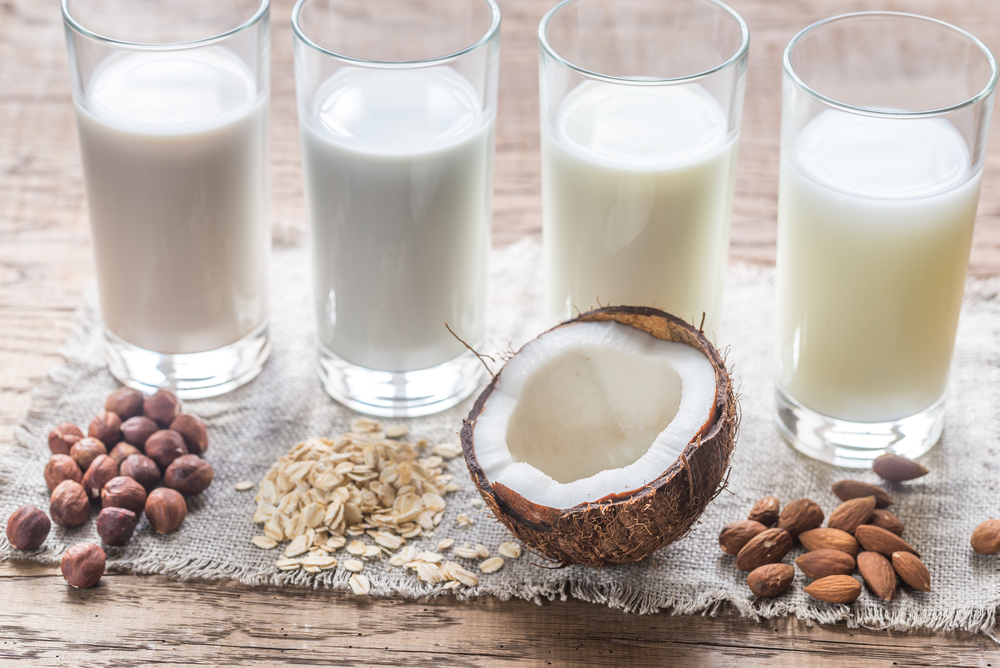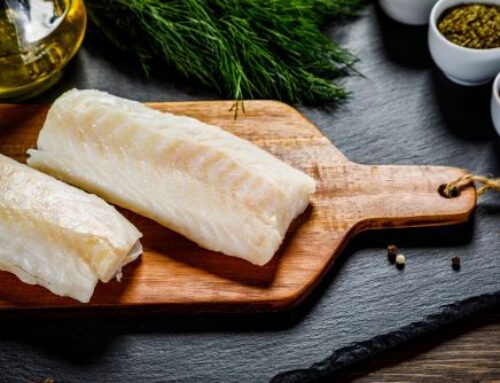We may crave the taste of dairy without being able to partake in it. Due to a diet, allergy, lactose intolerance, a bloating problem, or even an ethical preference, dairy isn’t always our best friend, even though it tastes pretty great. This leads many of us to seek out healthy dairy alternatives, despite milk’s convincing nutrient profile and nostalgic taste.
Read on to learn about 6 healthy alternatives to dairy. Whatever your reason for adding this restriction to your diet, these alternatives can provide you a safe haven from dairy. You may not need to lose the protein and carbs that milk provides, either. Depending on your needs, choose one of these alternatives to include in your diet.
Why Eliminate Dairy?
There are several reasons to exclude dairy from your diet, including lactose intolerance and milk allergies, which can cause people to vomit or break out in rashes. Though a milk allergy is rare, parents should be aware that it’s possible in young children.
There are other reasons you might want to eliminate dairy. For vegans, milk products present ethical issues, so using an animal-free alternative like those listed below would be preferable. Others may fear the potential health hazards of consuming milk in the modern-day, which could include growth hormones, antibiotics, and even pesticides.
Whatever your reason for seeking out other options, here are 6 healthy alternatives to dairy for those that need one.
1. Soy Milk
Soy milk is probably the most known milk alternative. It’s made from soybeans and thickened with vegetable oil. While it doesn’t have the exact taste of milk, it’s still pretty creamy! The brand makes a difference here, so you may have to pay extra to get the best taste.
Especially if you need milk for a baking preparation or in coffee, the taste difference is easy to get used to. As a plus, soy milk contains a full protein profile.
Be aware that soy can affect estrogen levels when consumed regularly, so a little research may be required on your part to determine if it’s right for you.
2. Coconut Milk
Coconut milk is creamy and sweet. It can be found in many smaller grocers as a milk alternative, often sold in cans. The water and flesh of the coconut go into the “milk” to provide a hydrating, subtle alternative to cow’s milk.
Coconut milk has far fewer calories, protein, and carbs than normal milk. It may also aid in weight loss by improving blood cholesterol and reducing appetite.
3. Almond Milk
Almond milk comes from its namesake nut, often combined with water or almond butter for a better texture. Almond milk is a great substitute when added to desserts, coffee, and tea owing to its nutty, sweet taste.
If you’re calorie-conscious and looking for a milk substitute, almond milk is the best option on this list. Keep in mind that it’s mostly water, which means that it contains fewer nutrients as well. Look for brands that include more almonds to get more benefits.
4. Hemp Milk
Cannabis has entered the consciousness of the health food world lately with its ability to calm those who consume it. If you’re worried about the mind-altering effects of marijuana, don’t be! Hemp milk comes from hemp seeds, which contain little to no THC, the psychoactive compound found in natural cannabis.
Hemp milk contains as much fat as real milk but only half the calories and even fewer carbs. It’s a good source of omega-3 as well.
5. Oat Milk
Oat milk is just oats and water in its basic form, but if you buy it, there are usually additives to make it taste better. You can easily use oat milk in smoothies and cereal owing to its taste and you’ll get the same calories (and double the carbs) as you would with cow’s milk.
This makes oat milk, which is also high in fiber, easy to digest. It can even balance cholesterol levels.
6. Rice Milk
Rice milk is thickened to give it a more milk-like texture. However, it still works great for people who are not only lactose-intolerant but may also have trouble digesting soy, gluten, or nuts.
Rice milk has less protein than cow’s milk but double the carbs and the same number of calories. Like rice, however, your body absorbs it quickly, causing a spike in blood sugar levels. If you’re diabetic, you shouldn’t use rice milk as an alternative to dairy.
The Takeaway
Due to allergies, intolerance, or ethical issues, milk may not be an option in your daily diet, even if you crave the rich, creamy taste. However, many of the above alternatives provide similar health benefits and a comparable taste to help you stop missing milk.
Experiment with an alternative that sounds right for your needs. Remember, you can diversify, using one for cooking and another for your cereal. With all the alternatives out there, you should be able to find something that works for you.





Leave A Comment